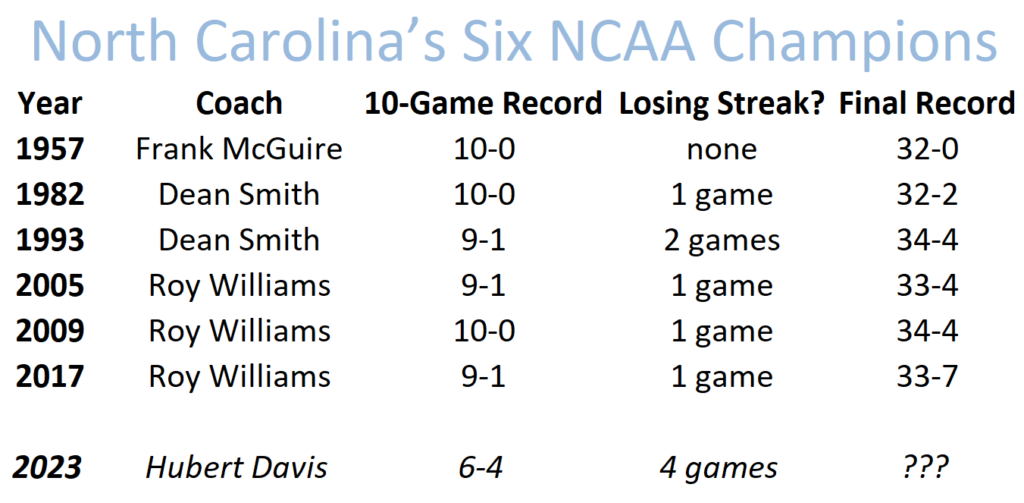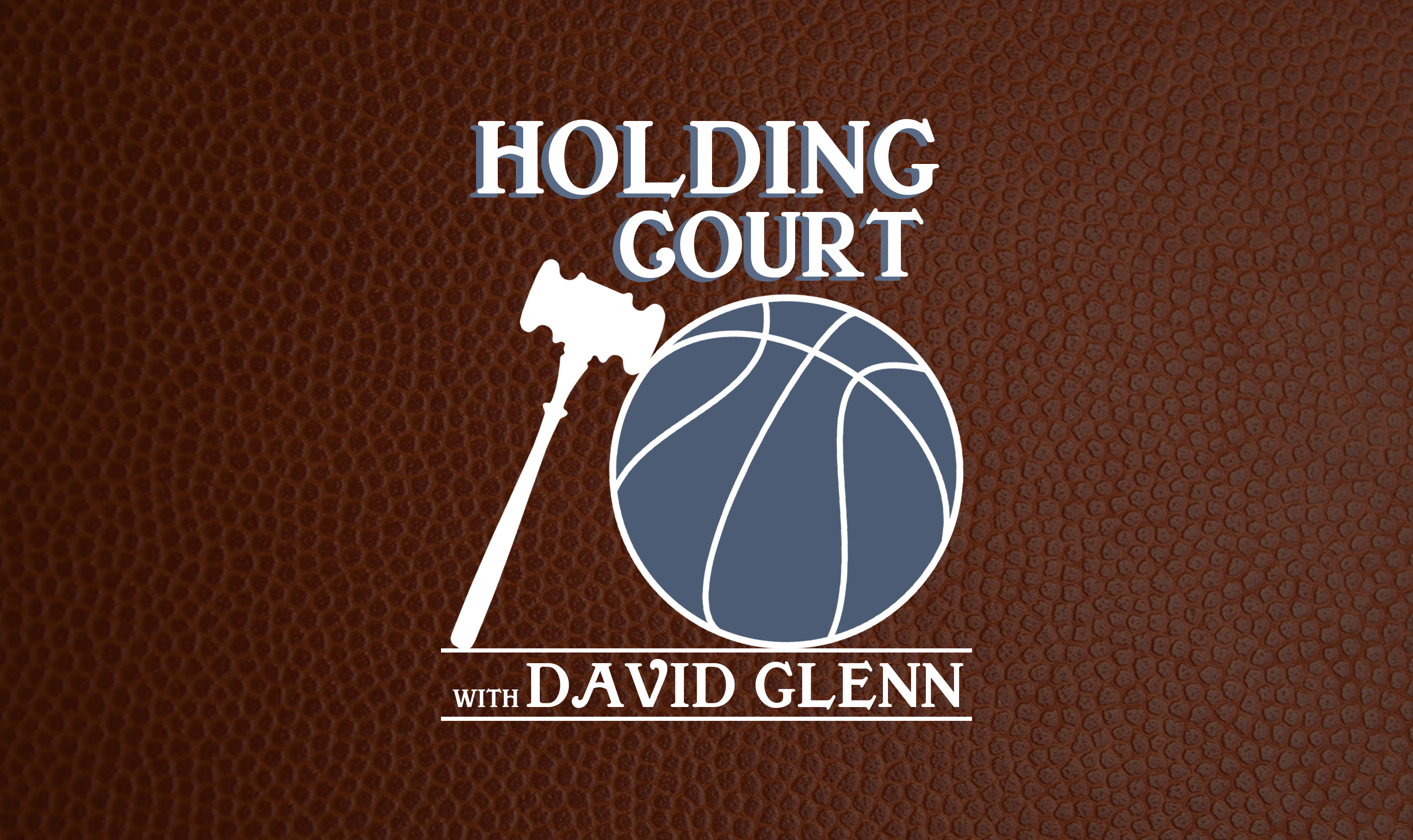Historically Speaking, NCAA Title Teams Dodged Struggles Of 2022-23 Tar Heels
By David Glenn
While RJ Davis, Caleb Love and other North Carolina players frequently used the phrase “championship or bust” prior to the 2022-23 season, second-year UNC coach Hubert Davis made clear that he personally views the Tar Heels from a broader perspective.
“I don’t look at it that way at all,” Hubert Davis said. “To win a championship, you gotta be healthy, you gotta get better day after day and week after week, the ball has to bounce your way. A lot goes into winning a national championship.
“Is that a goal of ours? Yes. But at the end of the day, what’s most important to me is that our team reach its full potential. That’s the thing that brings me satisfaction. This team, this year, if we can reach our full potential, we will have a chance at the national championship.”
During UNC’s 6-4 start to this season, it has become obvious that day-to-day, week-to-week improvement will have to be the Tar Heels’ formula for success this time, because their performance through 10 games looked nothing like the season-long excellence of Carolina’s NCAA title teams (see chart) of the past.

This year’s Tar Heels already have made history, in a sense, just the wrong kind.
Since the first Associated Press men’s basketball poll, in 1948, no preseason #1 team had ever lost four consecutive games. This 2022-23 UNC squad, of course, was the AP’s preseason #1 but suffered back-to-back-to-back-to-back defeats in late November and early December, falling to Iowa State (70-65), Alabama (103-101 in four overtimes), Indiana (77-65) and most recently Virginia Tech (80-72).
UNC ended its losing streak Saturday with a 75-59 home victory over Georgia Tech, but if the Tar Heels are going to somehow make a run at the 2023 national championship, they certainly will have to take the proverbial road less traveled.
UNC’s six NCAA title teams simply didn’t taste defeat often. Only one of the six (the 1993 team) experienced a losing streak of any size. Only one of the six (the 2017 team) suffered more than four defeats over the course of their entire four- to five-month season, including the postseason.
Even beyond the Carolina-specific college basketball perspective, there simply aren’t many examples of teams starting slowly but finishing with the ultimate prize.
During the 1999-2000 season, Michigan State was “only” 9-4 when the calendar turned to 2000, but coach Tom Izzo and the Spartans rallied to finish first in the Big Ten regular season, won the Big Ten Tournament, earned a #1 seed in the NCAA Tournament and ultimately cut down the nets after six consecutive double-digit victories during March Madness.
In 1997, Arizona was “only” 10-4 at midseason under coach Lute Olsen. The Wildcats even lost four of their final eight regular-season games to enter the NCAA Tournament at 19-9, but they won a bunch of close games (including against UNC in the Final Four) in the big bracket to capture the program’s first (and still only) national championship.
Perhaps the ultimate “it’s never too late” college basketball story came in 1988. Kansas, led by former UNC player and assistant coach Larry Brown, was only 12-8 in early February and appeared bound for the NIT. The Jayhawks, who made the NCAA Tournament as a #6 seed with a 21-11 record, then became forever known as “Danny and the Miracles” with their stunning title run, which included wins over top-five Duke and Oklahoma teams in the Final Four.
A handful of other NCAA champions (e.g., 1986 Louisville, 1983 NC State, 1981 Indiana, 1959 California, 1958 Kentucky) also ultimately overcame modest starts and/or mediocre midseason records, but over time those examples have proven to be the exceptions, not the rule.
(featured image via Todd Melet)
 David Glenn (DavidGlennShow.com, @DavidGlennShow) is an award-winning author, broadcaster, editor, entrepreneur, publisher, speaker, writer and university lecturer (now at UNC Wilmington) who has covered sports in North Carolina since 1987.
David Glenn (DavidGlennShow.com, @DavidGlennShow) is an award-winning author, broadcaster, editor, entrepreneur, publisher, speaker, writer and university lecturer (now at UNC Wilmington) who has covered sports in North Carolina since 1987.
The founding editor and long-time owner of the ACC Sports Journal and ACCSports.com, he also has contributed to the Durham Herald-Sun, ESPN Radio, the New York Times, the Washington Post, Raycom Sports, SiriusXM and most recently The Athletic. From 1999-2020, he also hosted the David Glenn Show, which became the largest sports radio program in the history of the Carolinas, syndicated in more than 300 North Carolina cities and towns, plus parts of South Carolina and Virginia.
Chapelboro.com does not charge subscription fees, and you can directly support our efforts in local journalism here. Want more of what you see on Chapelboro? Let us bring free local news and community information to you by signing up for our biweekly newsletter.


